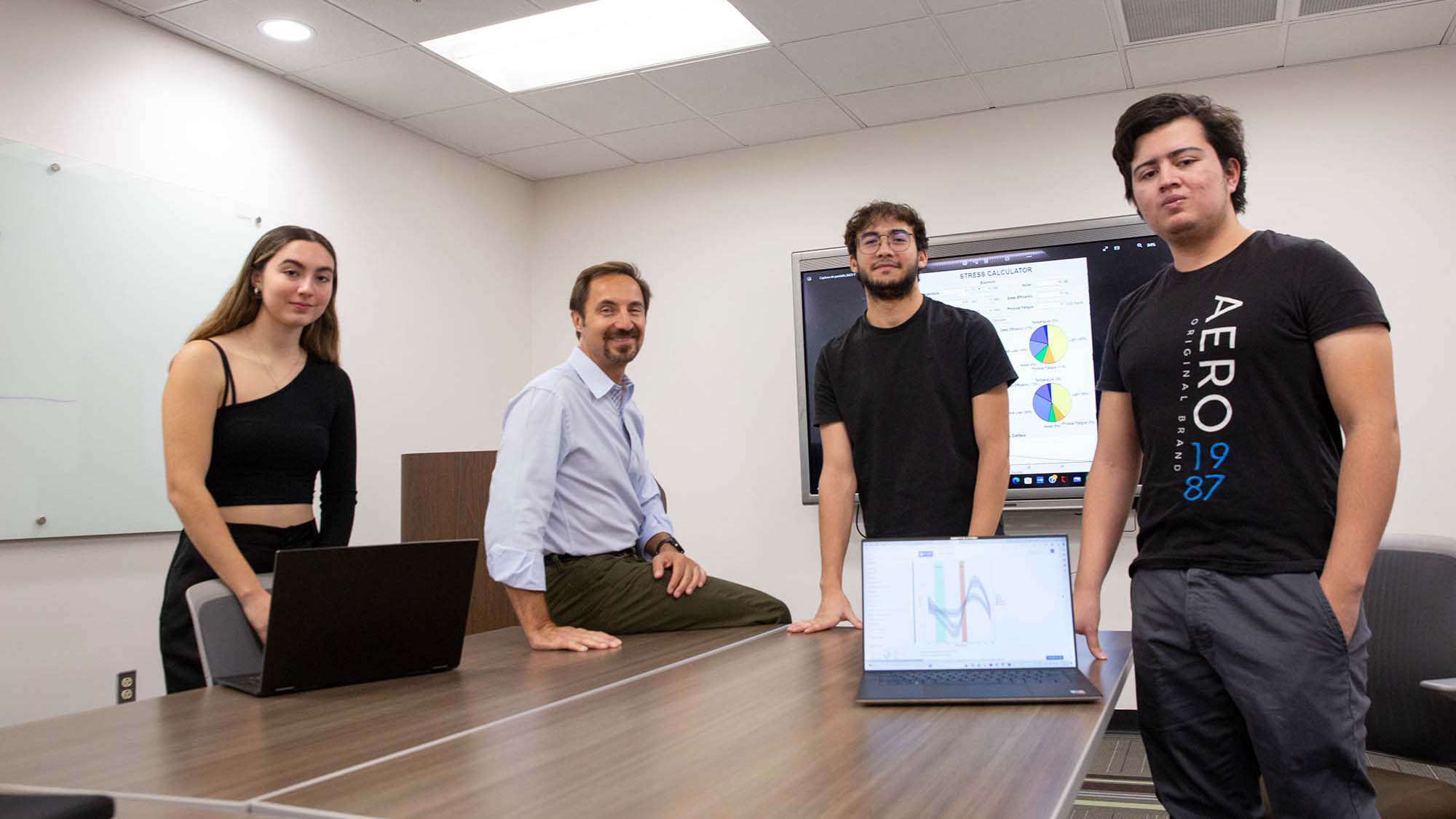
Student research themes
Research in the Fulton Schools
The Ira A. Fulton Schools of Engineering have seven student research themes that are derived from the four main research themes:
Fulton Schools research themes
Climate technology solutions
Competitive manufacturing in an advanced economy
National and economic security
Technology-enhanced health and medicine
Derived from these themes, the student research themes were created to ensure that students are engaged in relevant, timely and important research. The themes represent prominent areas of need both nationally and globally. Research in these themes can produce real and lasting effects for the environment and the long term health of human beings across the globe.
Fulton Schools student research themes
Student research opportunities abound for both undergraduate and graduate students in the Fulton Schools. Two options for undergraduates are the Fulton Undergraduate Research Initiative, or FURI, and the Grand Challenges Scholars Program, or GCSP, among others. Master’s degree students can apply to the Master’s Opportunity for Research in Engineering, or MORE, program.
For all of these programs, research performed must fall into one of the following student research themes:

Data
In an increasingly digital world, data collection is growing at a rapid pace. Fulton Schools faculty and student researchers are devising innovative approaches and tools that will help us better process, analyze, use, manage and access data. New computational tools, algorithms and data analysis techniques, including hardware and software approaches, machine learning, data analytics, data-driven decision-making and more will help advance scientific discoveries and collaborations across multiple fields where data use and capture is ubiquitous.

Education
We are engaged in advancing the ways we educate engineering students. The Fulton Schools’ research focuses on learning methods, cognitive theory and best teaching practices, as well as the integration of engineering concepts in K-12 educational programs to engage students early and educate our community about the impact engineering has on everyday life.

Energy
The urgency to discover and deploy new forms of carbon-reducing energy technologies has become an indispensable part of our economic and environmental landscape. The Fulton Schools’ research in renewable and alternative energy sources is multifaceted with efforts in solar and photovoltaic energy, biotechnology, low- and high-power energy storage, power electronics, electric power systems, batteries and hydrogen fuel cells.

Health
The Fulton Schools’ efforts in health innovation range from understanding the causes behind Alzheimer’s disease and improving methods for predicting epileptic seizures to developing advanced biosensors, bioassays and lab-on-a-chip devices for clinical diagnostics. Additional areas of research exist in novel biological materials, neural engineering, biomedical informatics, drug-delivery systems, health care systems analysis and modeling, health monitoring devices and human rehabilitation technologies.

Security
As technology develops at a faster rate, there is a growing need to develop engineering systems to keep people and infrastructure secure, including securing cyberspace, developing secure communications, developing self-healing systems resilient to attack and identifying, monitoring and reducing threats. Fulton Schools researchers — faculty and students — are addressing issues of national defense, homeland security, border security, cyberwarfare and more, devising technology solutions as well as legal, policy and social implications.

Semiconductor manufacturing
Semiconductor devices are part of our everyday lives and the demand for techniques and processes to promote them continues to grow. Fulton Schools researchers are driving innovation forward through advances in areas such as power electronics, wireless and mixed-signal circuit design, memory devices and architectures, solar energy and batteries, advanced packaging and new semiconductor materials. Expansive industry collaborations and unique facilities at ASU center Arizona as a hub for the American semiconductor revolution.

Sustainability
The central thrust behind sustainability is the capacity of metropolitan areas to grow and prosper without destroying or depleting natural resources. The Fulton Schools’ research focuses on restoring and improving urban infrastructure, access to clean water and air, advanced construction techniques and management, environmental fluid dynamics, transportation planning, as well as geotechnical and geoenvironmental engineering.
Fulton Forge Student Research Expo
Students who participate in research have the opportunity to present their findings at the Fulton Forge Student Research Expo each fall and spring semester. Check out the research projects!